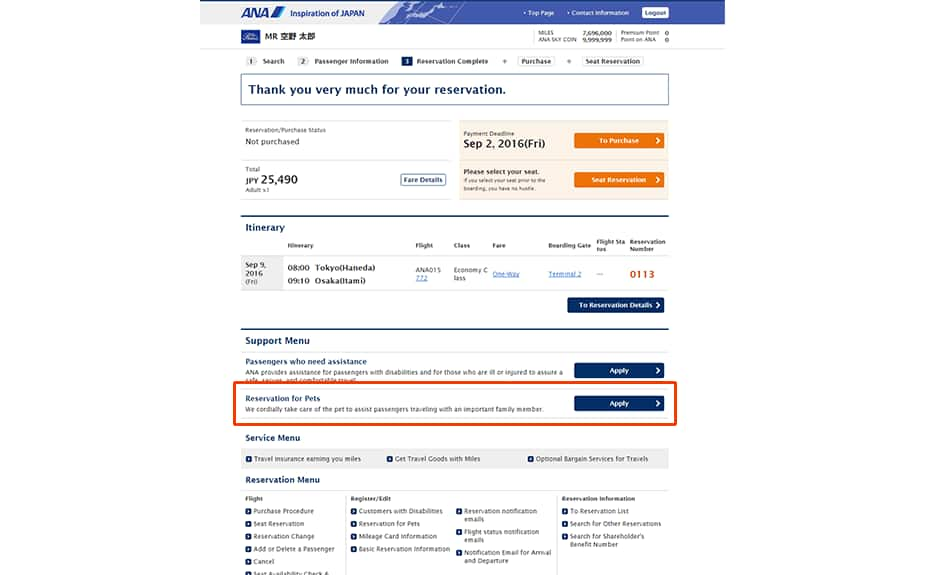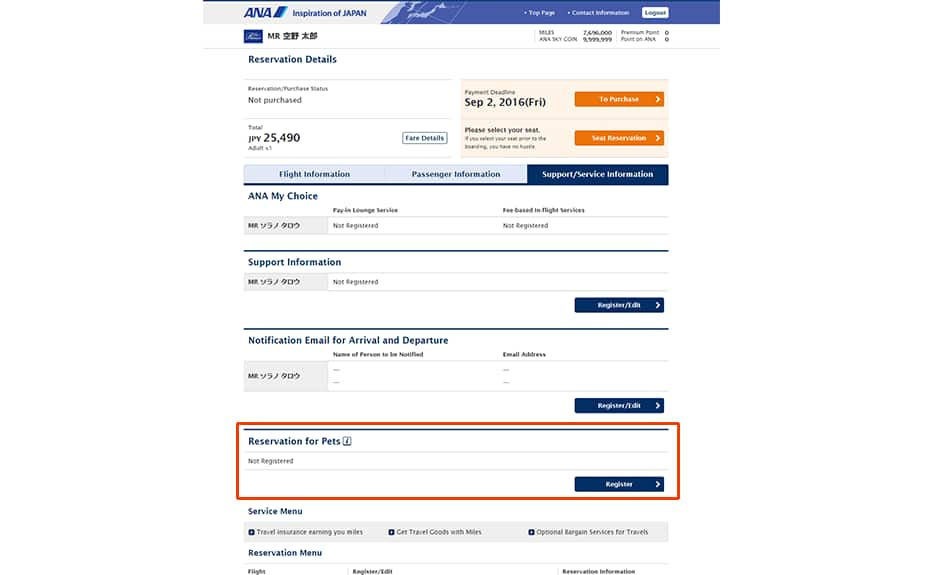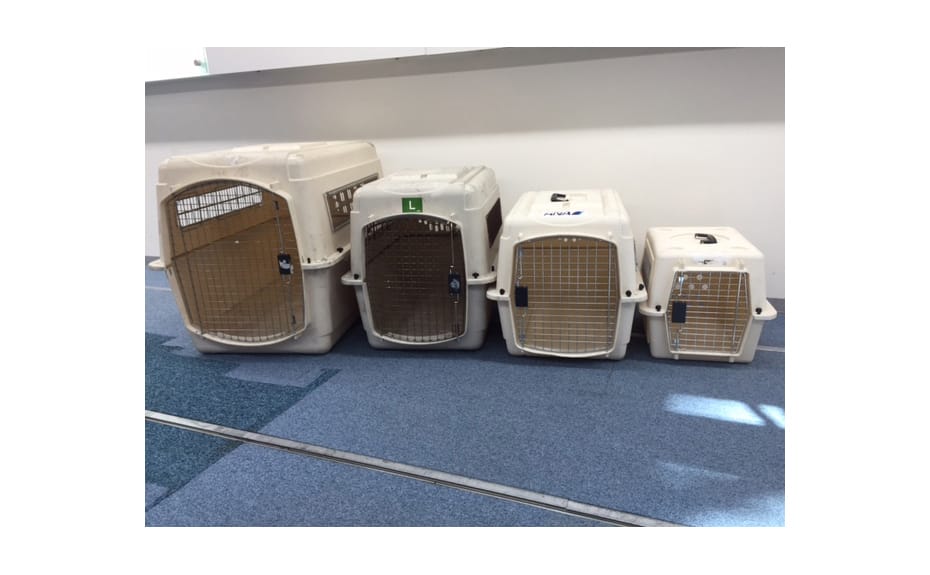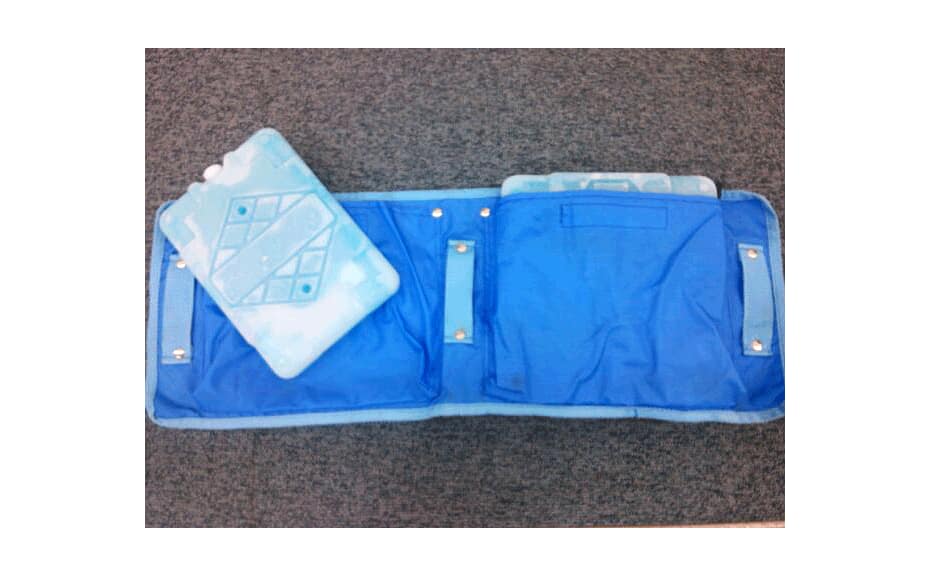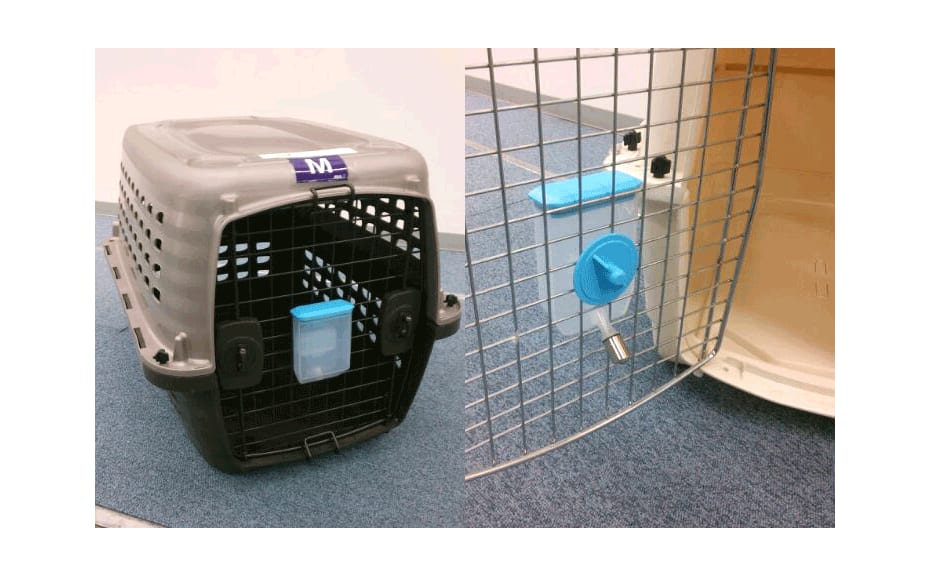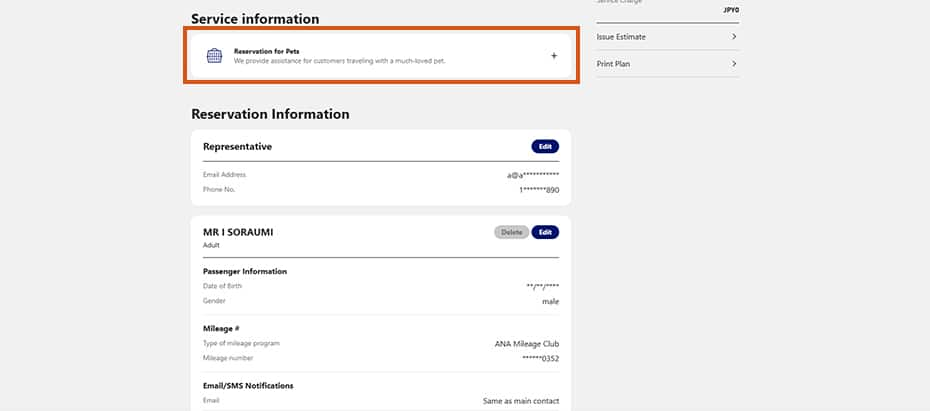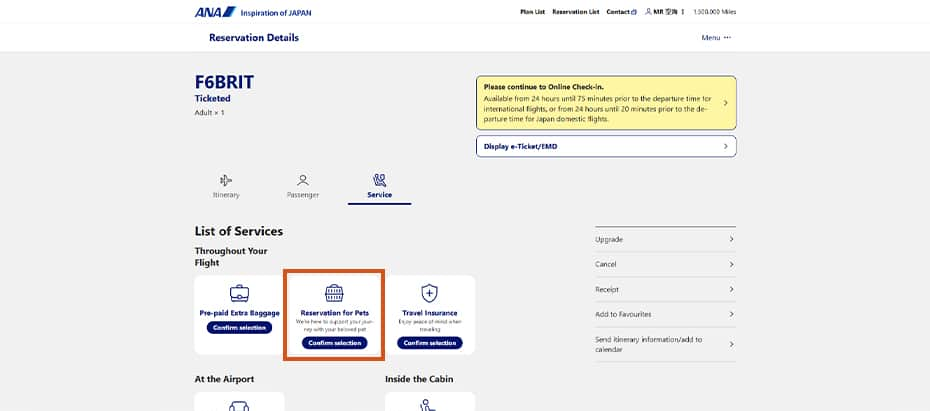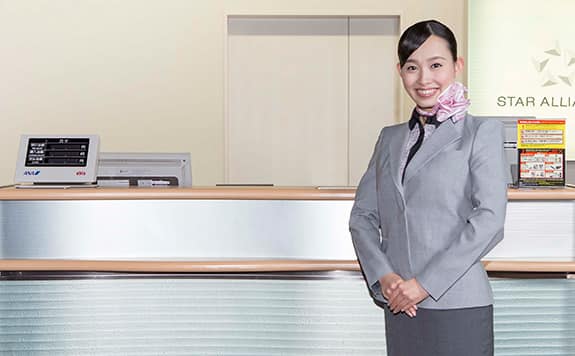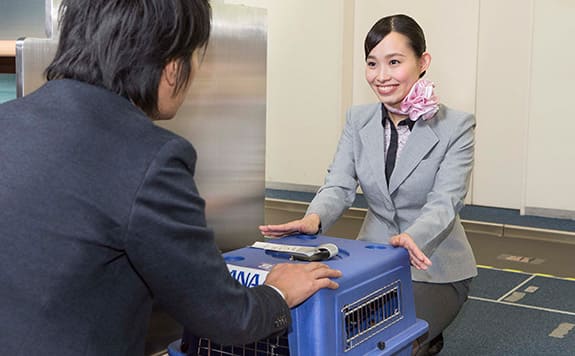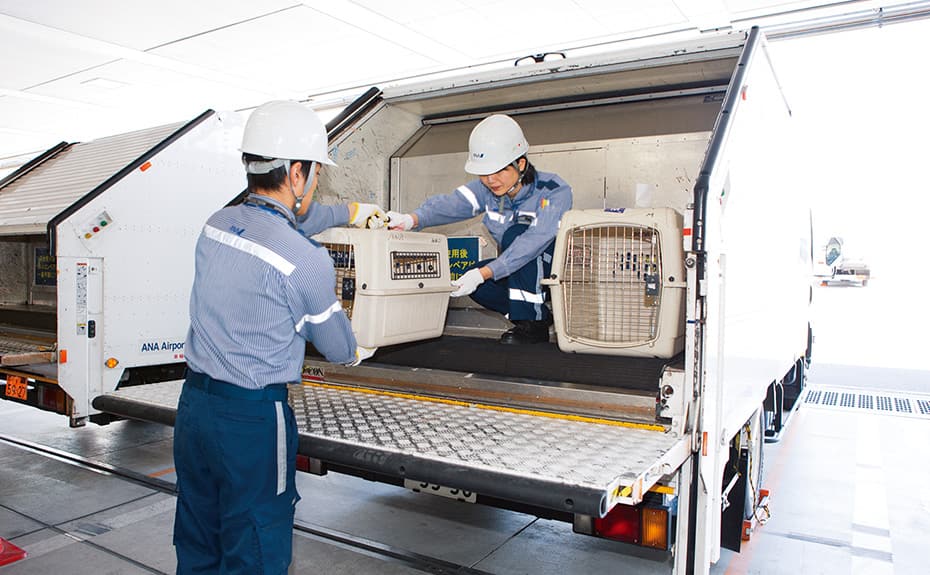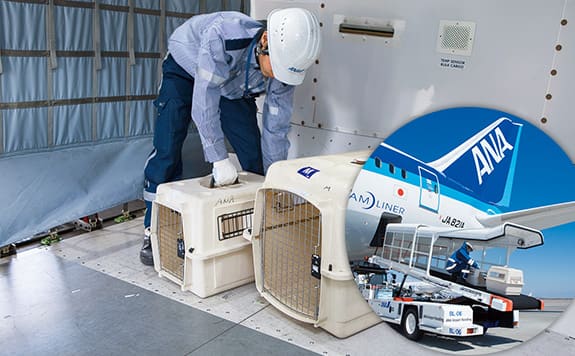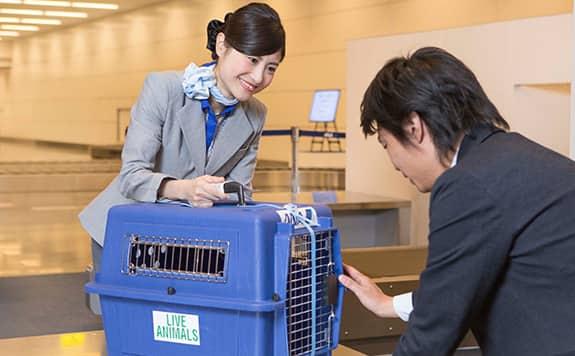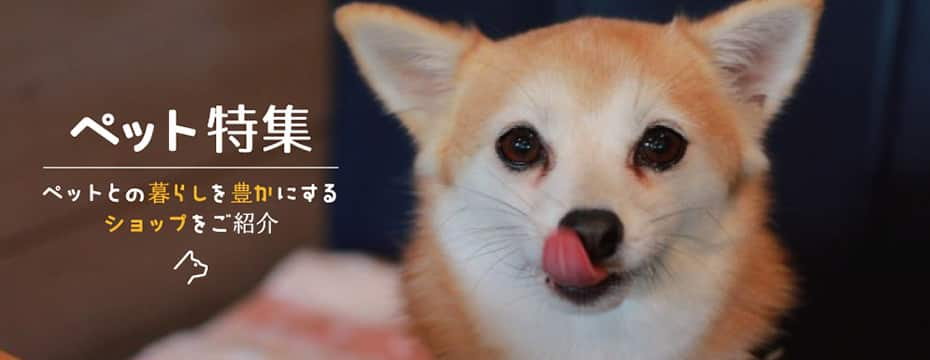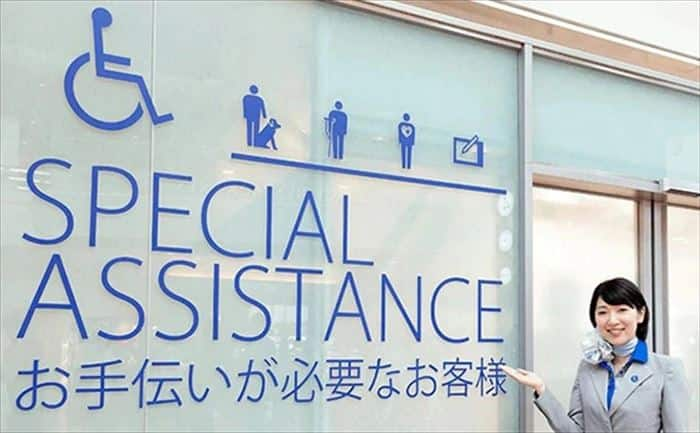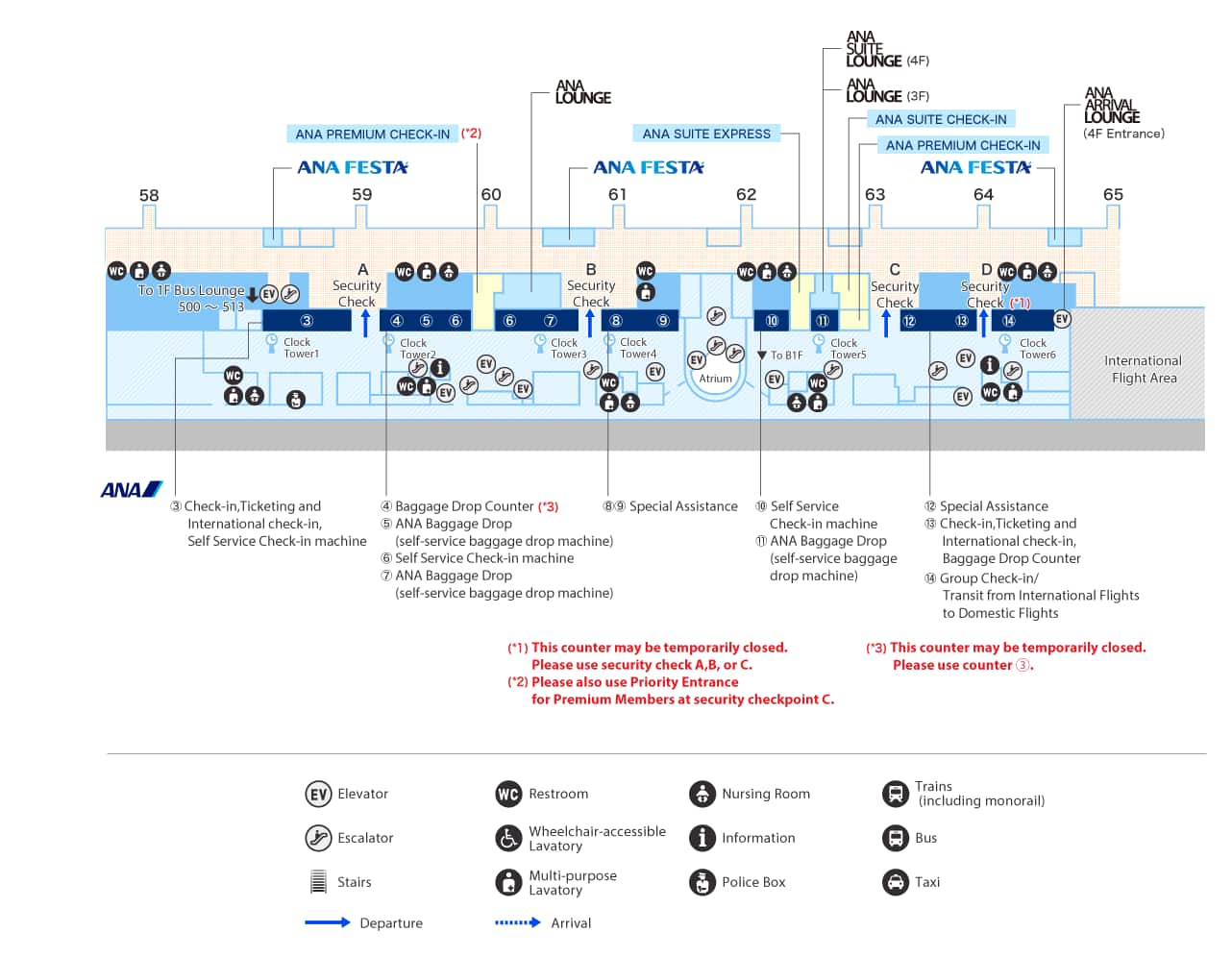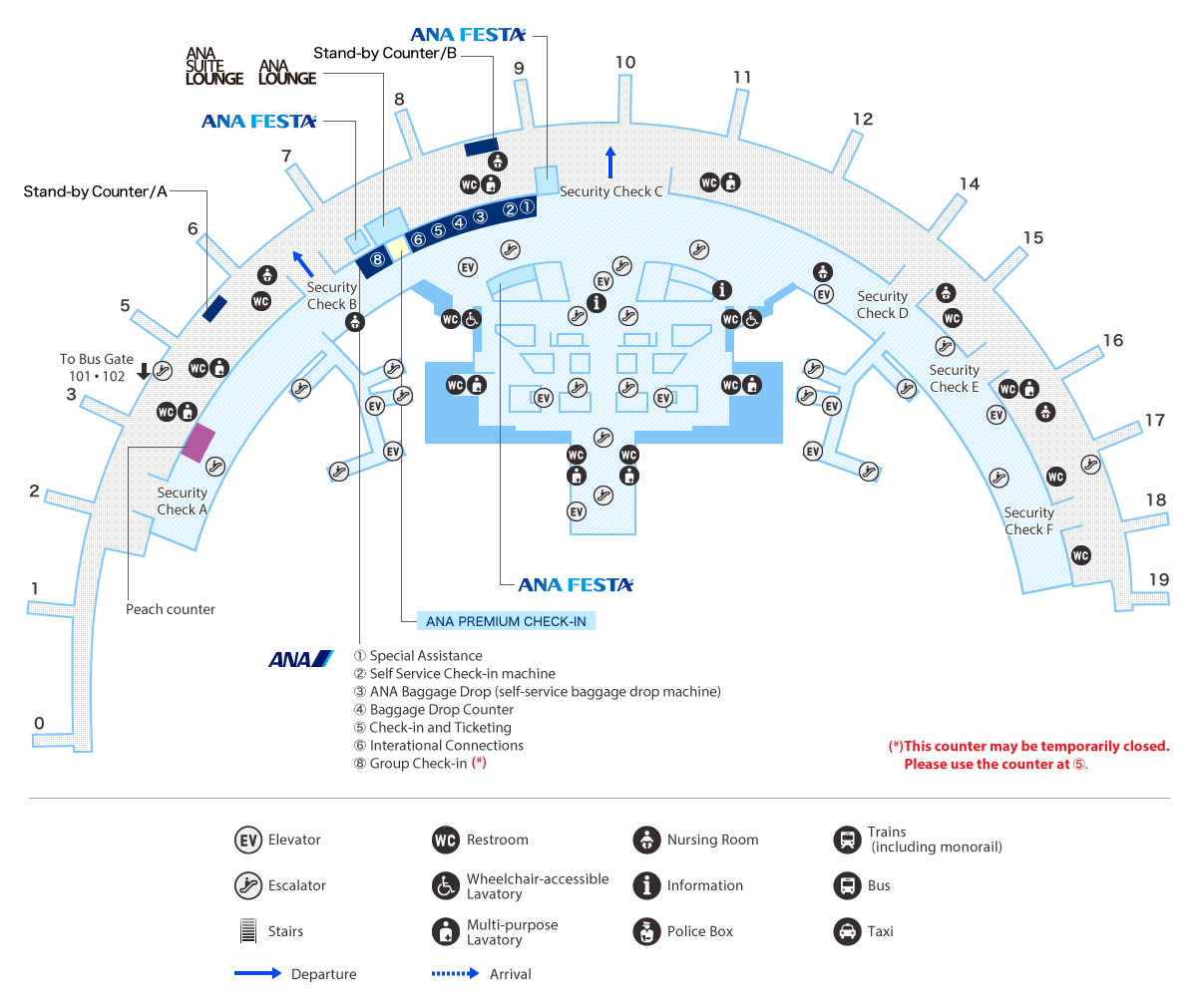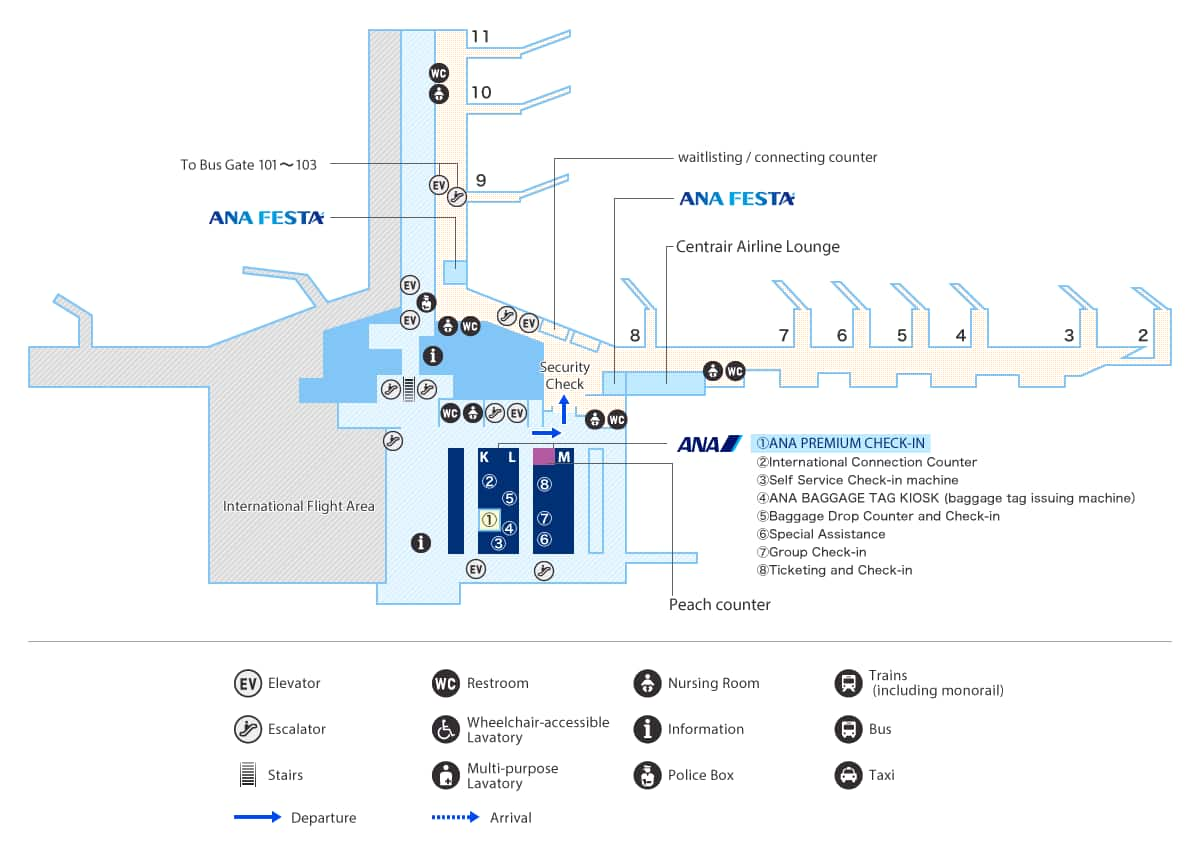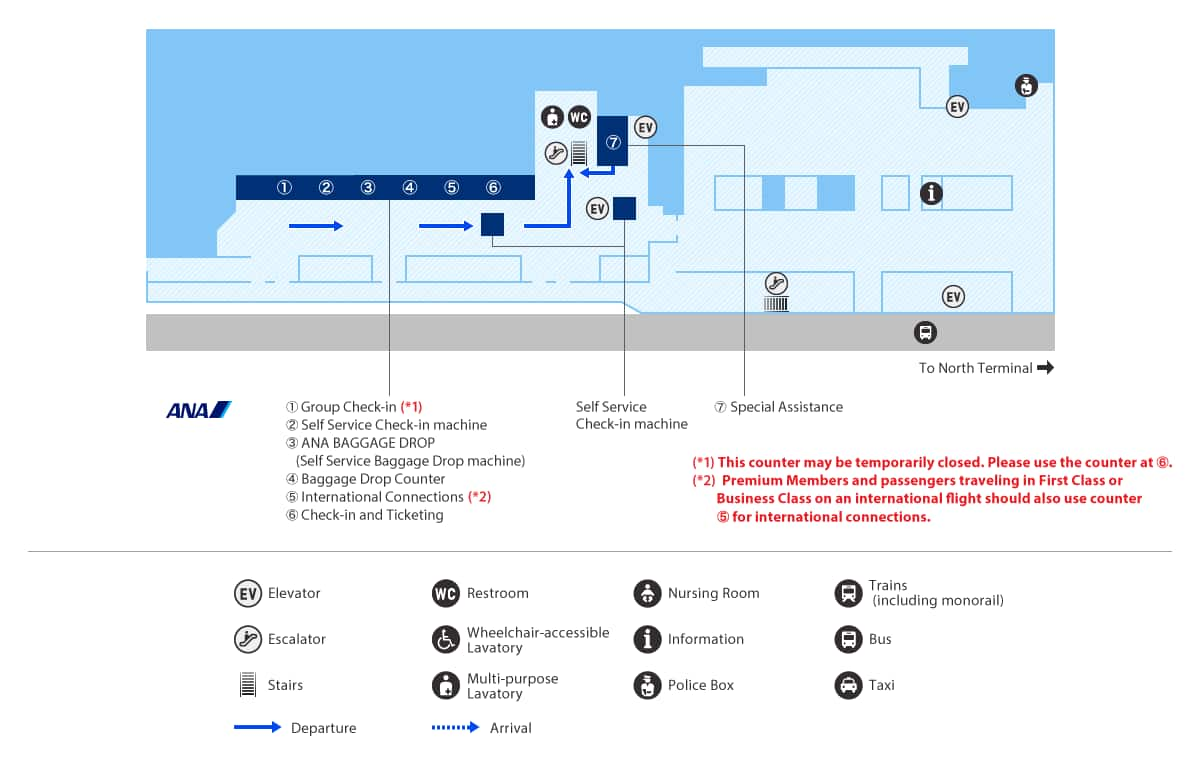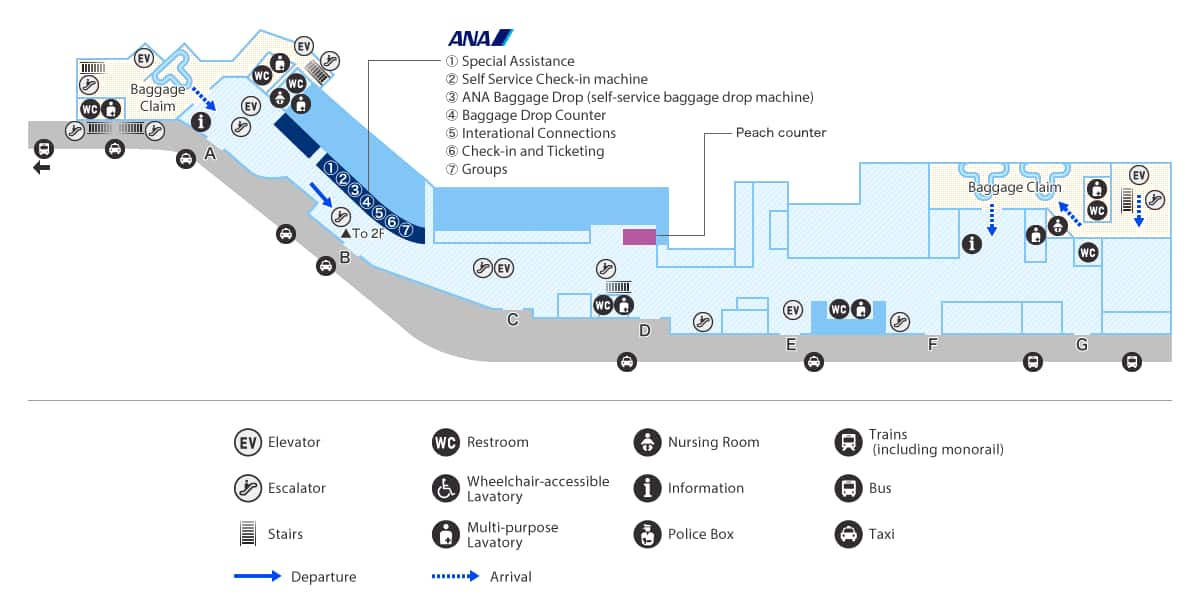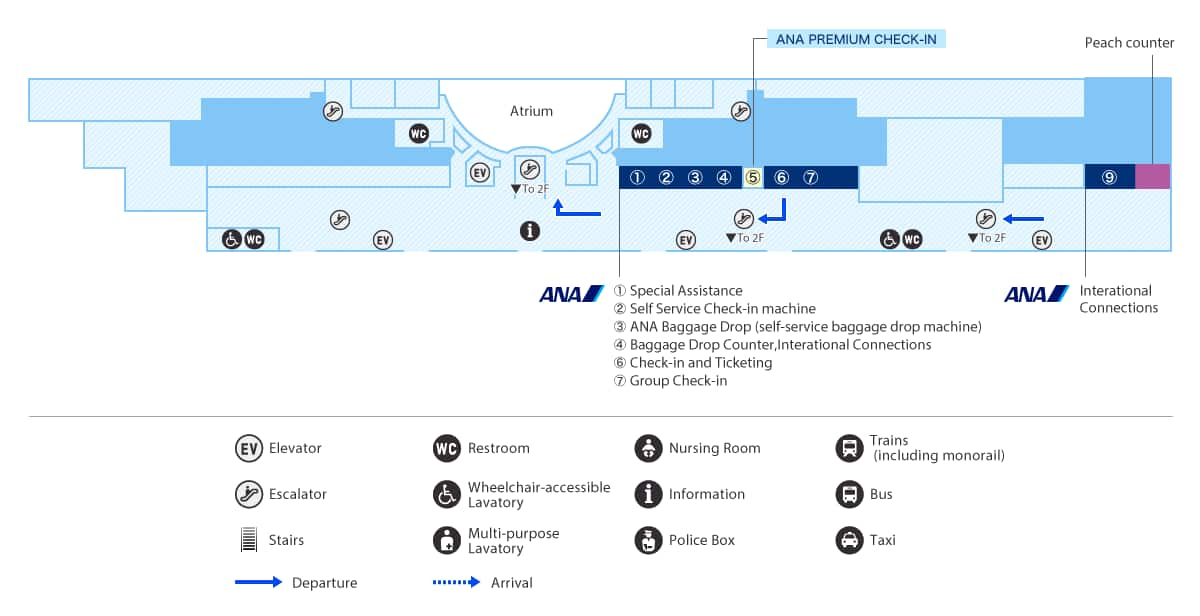- Please select the card you wish to join
-
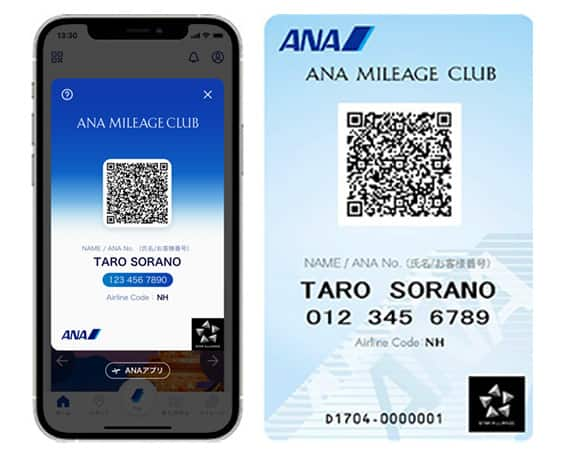
Get your digital card immediately
No enrollment or annual fees
ANA Mileage Club Card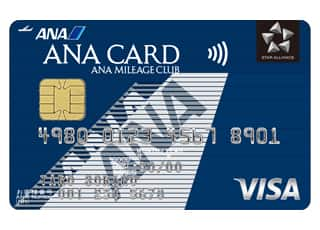
Earn more miles for your money
With credit function
ANA Card
Passengers traveling with pets (Japan Domestic Flights)
ANA provides assistance for passengers traveling with their beloved pets.
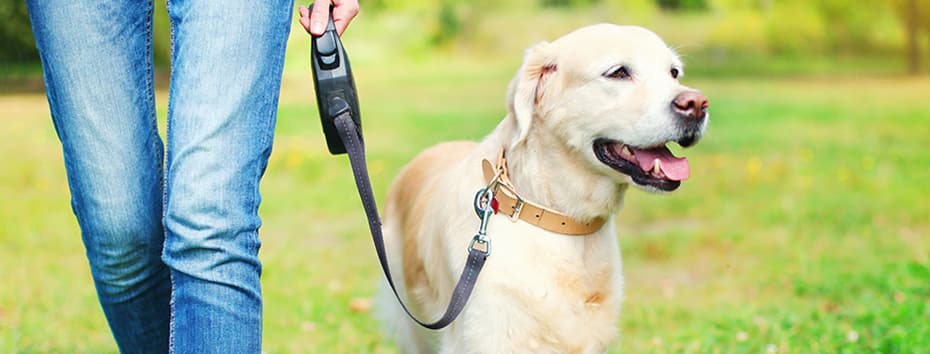
-
ANA provides cooling packs and watering devices for pet cages during the summer (May 1 - October 31). However, there are a limited number of watering devices available for rent from ANA. We would appreciate your cooperation in preparing these items yourself.
-
As the various handling procedures will be different for flights operated by Japan Air Commuter and Amakusa Airlines, you are kindly requested to see the information on the Japan Air Commuter or Amakusa Airlines page before you travel on such flights.
Assistance for passengers traveling with pets
The handling will differ for pets that are transported as air cargo without their owners.
-
Check "Transporting Animals (Pets) Handled as Cargo (Japan Domestic) (Japanese Only)" for information on transporting pets as air cargo without their owners.
-
Check the airport or business office (Japanese Only) for the cargo service counter.
-
Disabled passengers accompanied by dogs, such as seeing-eye dogs or hearing-ear dogs, are able to travel together under animals in cabin service.
Refer to “Disabled Passengers Accompanied by Assistance Dogs” for details.
-
ANA will handle your pet with the utmost care so that it can travel as comfortably as possible. However, as the conditions on an aircraft are very different to a pet's everyday environment, transporting your pet by air may affect their health. There is a possibility of pets being left in a weakened physical condition or even dying. Please only consider using this service after thoroughly reading the cautionary notes.
Please note than ANA cannot be held responsible for the injury or death of a pet if it is attributable to the pet's inherent qualities such as their health condition and predispositions (including the effects of air pressure, temperature, humidity, and noise), or any container inadequacies, etc.
Points for Use
-
State of Health
-
Pets which can be checked in
-
The Transport Environment
-
Consent Form
-
Items to Be Confirmed and Preparations to Be Made by Passengers Themselves
-
Flow of Check-In at the Airport
ANA's pet related information
Contact
Please confirm in advance the length, width, and height of the pet cage you will be checking in as well as the total weight of the pet cage with your pet inside.
For passengers who require assistance
The ANA Group provides assistance to passengers with physical difficulties such as sickness, injury, or disability, as well as passengers requiring other assistance (Pregnant, elderly, traveling with infants or small children, children traveling without an accompanying adult, traveling with pets) so that they can enjoy a safe and comfortable flight.
Counter for passengers who need special assistance at Airports
-
Haneda Airport 2F
-
New Chitose Airport 2F
-
Chubu International Airport 3F
-
Itami Airport 1F
-
Fukuoka Airport 1F
-
Naha Airport 3F

